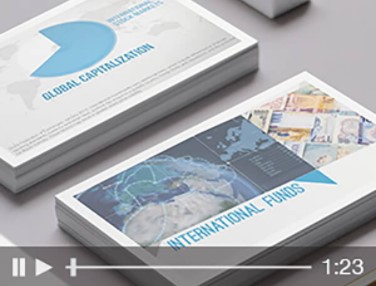Estimating the Cost of College

INVESTMENT • Read Time: 4 min
Estimating the Cost of College
It doesn’t take a degree in finance to see the cost of college continues to rise.
In its 2017 report, the College Board showed that public four-year institutions raised prices an average of 3.2% annually between the 2007-08 and 2017-18 school years. Put another way, a $5,000 education in 2007-08 would cost $6,851 in 2017-18.
For a few families, the lion’s share of education costs falls on parents and, in some cases, on grandparents. Generally the majority of families rely on a combination of scholarships, grants, financial aid, part-time jobs, and parent support to help pay the cost.
If your child is approaching college age, a good first step is estimating the potential costs. The accompanying worksheet can help you get a better idea about the cost of a four-year college.
If you’ve already put money away for college, the worksheet will take that amount into consideration. If you haven’t, it’s never too late to start.
 Tip: Public Costs. Average in-state tuition and fees for public four-year institutions was $9,970 for the 2017-2018 school year. Out-of-state tuition for these same institutions averaged $25,620.
Tip: Public Costs. Average in-state tuition and fees for public four-year institutions was $9,970 for the 2017-2018 school year. Out-of-state tuition for these same institutions averaged $25,620.Source: College Board, 2017
 Fast Fact: Private Costs. Tuition and fees for private four-year institutions averaged $34,740 for the 2017-2018 school year. If you add room and board, the figure rises to $46,950.
Fast Fact: Private Costs. Tuition and fees for private four-year institutions averaged $34,740 for the 2017-2018 school year. If you add room and board, the figure rises to $46,950.Source: College Board, 2017
Resources
There are a number of resources that can help individuals prepare for college. The U.S. government distributes certain information on colleges and costs. Here are two sites to consider reviewing:
www.studentaid.ed.govThe government’s college and financial aid portal. www.collegeboard.org
The group that administers the SAT test.
Estimating the Cost of College
The content is developed from sources believed to be providing accurate information.The information in the material in not intended as tax or legal advice. It may not be used for the purpose of avoiding any federal tax penalties. Please consult legal or tax professional for specific information regarding your individual situation. The opinions expressed and material provided are for general information, should not be considered a solicitation for the purchase or sale of any security.
Have A Question About This Topic?
Related Content

Global and International Funds
Investors seeking world investments can choose between global and international funds. What’s the difference?

Emotional vs. Strategic Decisions
Information vs. instinct. Are your choices based on evidence of emotion?

5 Smart Investing Principles
Principles that can help create a portfolio designed to pursue investment goals.

